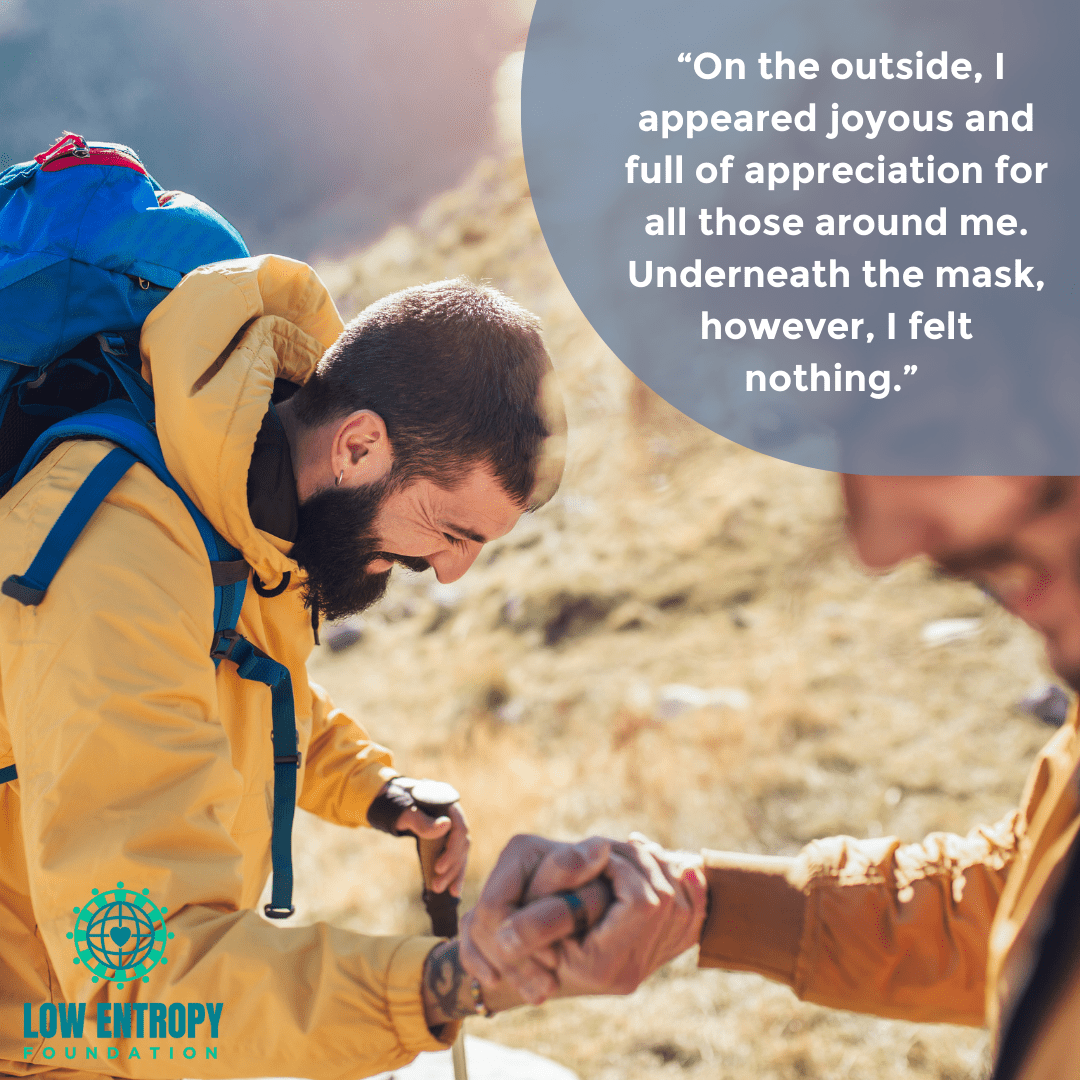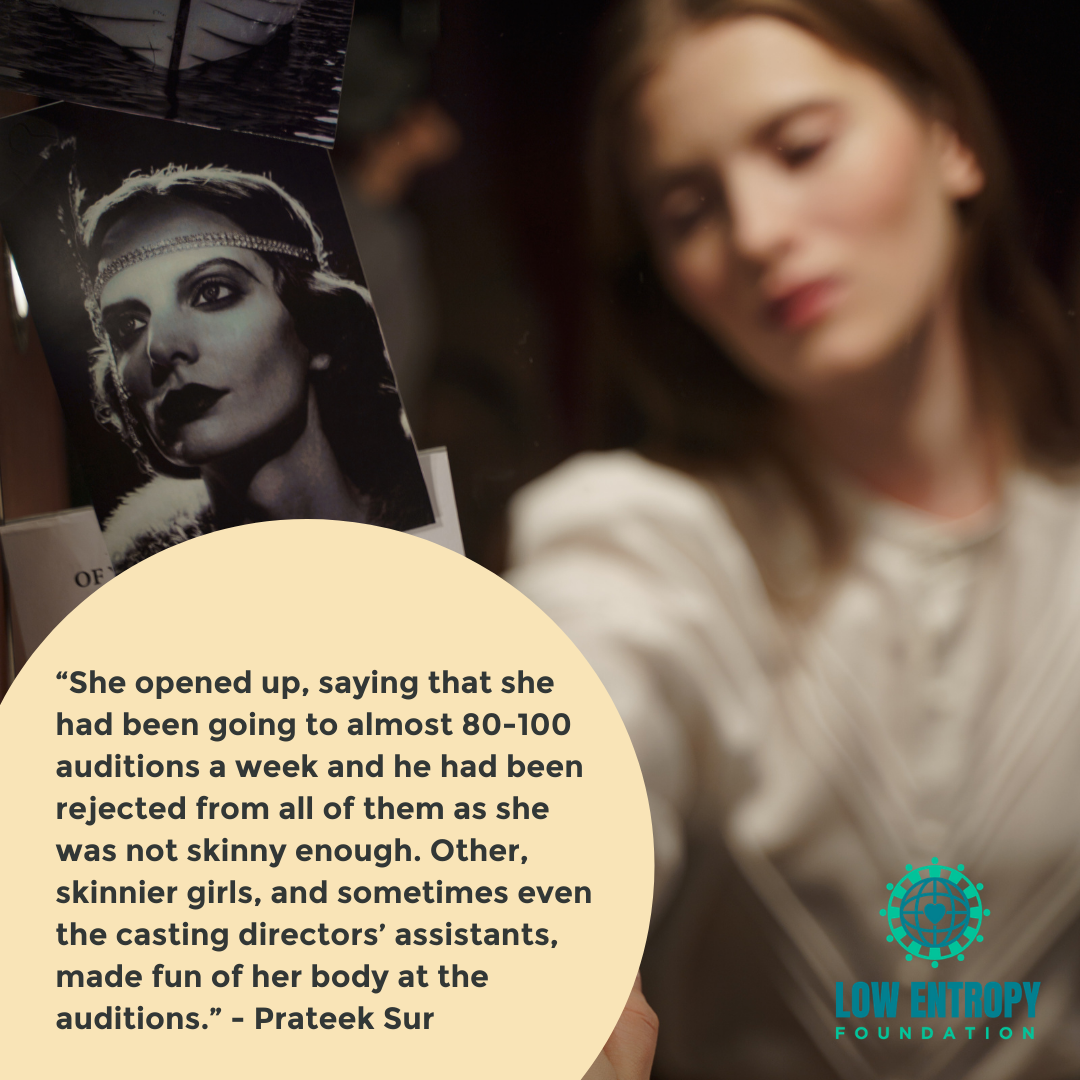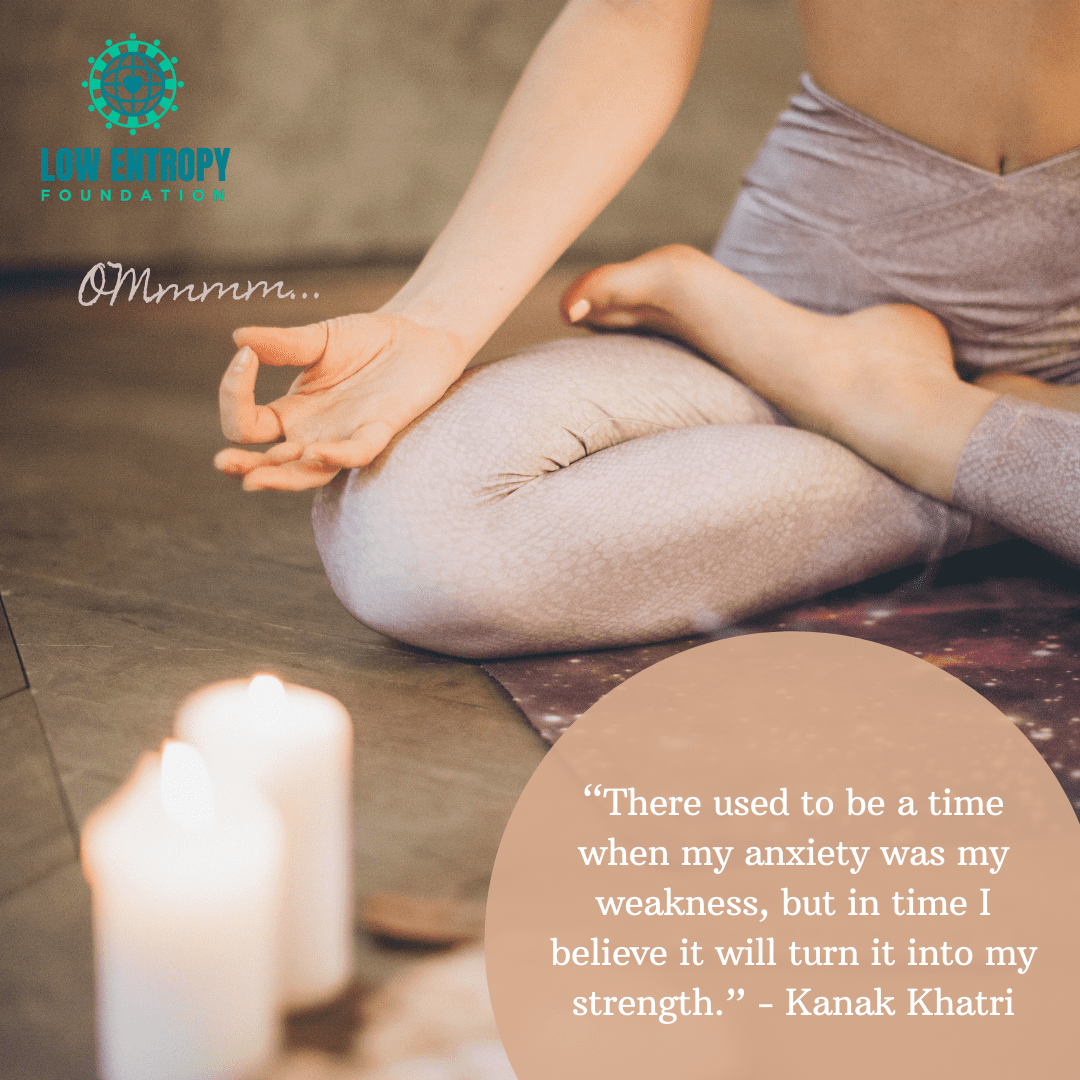Receiving Relief: the Importance of Getting Help for Mental Health
August 10, 2022

(and What Happens When the Need for it is Unaddressed)
Bethany Howell (she/her/hers), Low Entropy Volunteer Writer
For many years, I have struggled with my mental health. From panic attacks at age seven to the slough of meds I progressed through in my early twenties. In all honesty, I cannot say I remember all that I have been through — depressive episodes have taken away months, if not years of my life; however, I do know that I have not always been the “sunshine-y” being that my friends know me as today. Though I am now a clean, put-together person, there were periods in which I could not leave my bed for weeks at a time and days in which my heart would be beating so fast that I could barely breathe for no reason at all. There were good times and bad times, as there always are, but the bad outweighed the good for much of my young adult life.
I first sought help at age fifteen, to no avail. I was sent home with a diagnosis of “teen girl emotions.” I was ushered out of my hometown’s mental health crisis center as I had not made any active attempts of harming or killing myself — a terrible thing to tell a person who was deeply considering such attempts. Needless to say, I did not get the support I needed. This led me to further hide my emotions and my struggles not only from the outside world, but also from those close to me for years.
On the outside, I appeared joyous and full of appreciation for all those around me. Underneath the mask, however, I felt nothing. I would spend my evenings after an “excellent” day out with friends lying on my bed, unable to cry but lacking the motivation to do anything else. Whenever I were to open up, I was always met with replies of “I never would have guessed!”, “but you always seem so happy!”, and “I get sad sometimes too.” It seemed as though no one understood me, which is perhaps the most common struggle when it comes to mental health.
It wasn’t until COVID first struck when I was twenty that I first tried to reach out once again. Having been kicked out of my university’s residence, the only true “home” I had at the time, I found myself back where I had been years ago — sitting in my childhood bedroom in a state of inconsolable apathy. I felt as numb as I had years ago when I went through my first blackout depression. This time, however, I could feel myself slipping in faster than ever before. I decided to reach out once again, maybe because of the friends I had at the time or possibly my knowledge about depression gained from my few months attending university to study psychology. Unlike what had occurred five years prior, my call for help was answered with doctor’s appointments and crisis therapy with people who actually took my condition seriously. I heard choruses of “why didn’t you come to us sooner?” and I didn’t have the heart to tell them that I had and that my outward appearance — a young girl dressed in a band t-shirt and skinny jeans — automatically excluded me from receiving assistance. I finally fit their view of mental illness at the ripe age of twenty.
It has been over two years since I started taking antidepressants, all because of that one call to a crisis center in May of 2020. Life is better now, not only because of the meds, but they certainly have helped. Though it took years and many trials to be put on medication that works for my depression and my anxiety and find good therapy, I have found a solution that works for me. I am happy to say that the girl who planned on dying at age fifteen fully alone is alive and thriving in a healthy relationship with her long-term partner at age twenty-two.
Though my mental illness does still make up part of my identity, it is no longer the only thing I see in myself and I have purposefully surrounded myself with those that understand my struggle and know how to help me during the bad days (yes, there still are bad days). Altogether, depression and anxiety are part of what make me myself, but I would not wish my journey on anyone. If you know someone who is struggling with mental health challenges, whether it be bouts of depression and anxiety or diagnoses such as BPD and schizophrenia, please reach out. Help how you can, but do not assume that you know what they need. Also, do not assume that someone is fine just because they “seem okay.”
Finally, if my story sounds familiar and you are someone that is going through a rough time right now, please do not be afraid to reach out for help, regardless of past experience. If there is one thing I have learned over the years, it is that life is always improved with you in it and that it does get better — it may take time, but it always gets better. There is hope.
—
Bethany Howell is a fourth-year university student studying psychology and families. She has a passion for writing – especially in regards to mental health – and her ultimate goal since age thirteen has been to make a difference in the world through helping others.
GET INVOLVED
At Low Entropy, we believe changing the world starts with changing ourselves.
Founded in 2015, Low Entropy Facilitates conversations that encourage diversity and promote inclusivity.
We understand that life can be confusing at times. It can seem challenging and sometimes you may feel like no one really “gets you.” We offer an opportunity to connect with others who have the capacity to understand you.









